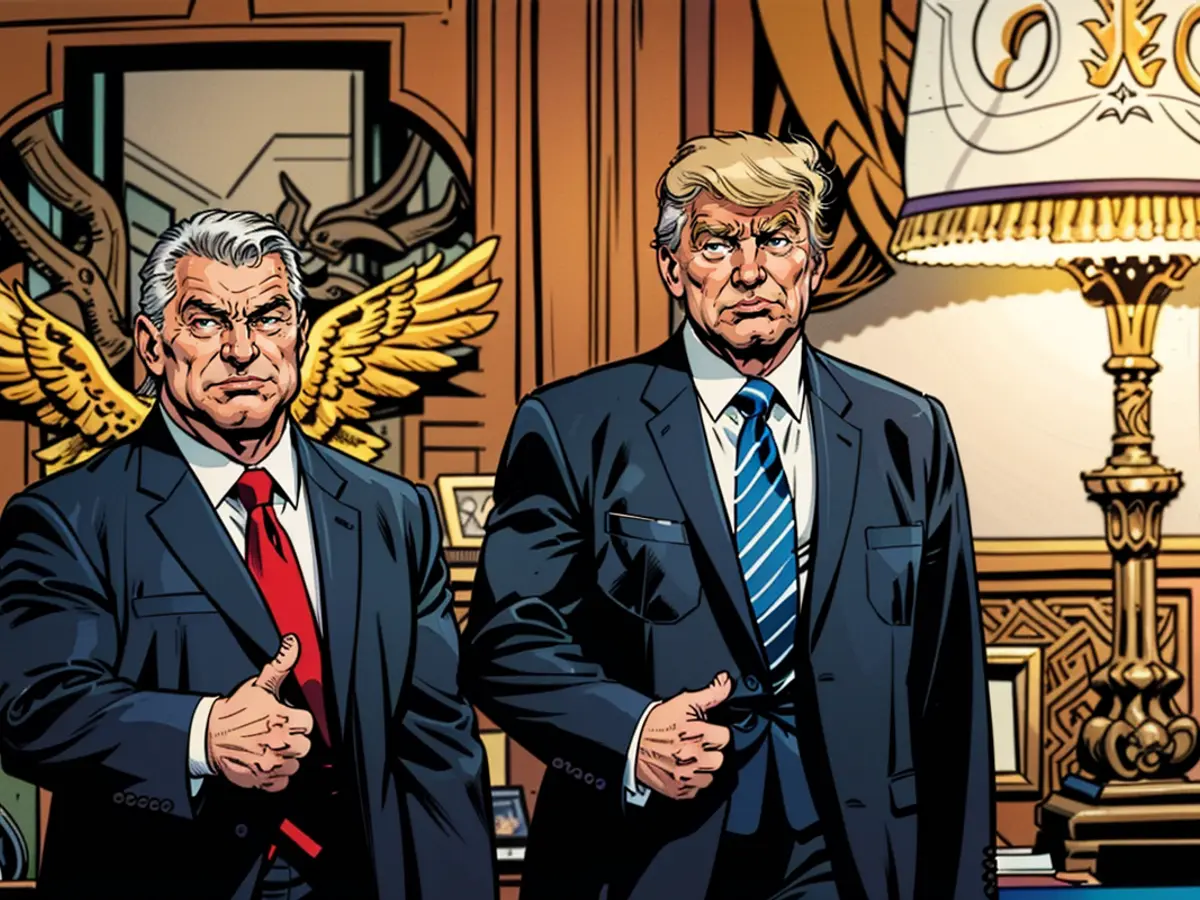Orban meets Trump after NATO summit
Federal Foreign Minister Annalena Baerbock (Greens) spoke of "irritations" in the European Union (EU) prior to a possible meeting between Orban and Trump. For foreign policy, the EU foreign policy representative is responsible, she said on Thursday.
Orban, whose country currently holds the rotating EU-Council Presidency for six months, recently caused widespread criticism with a visit to Russian President Vladimir Putin in Moscow. Orban later described his Moscow trip in the face of the war in Ukraine as a "peace mission".
"Viktor Orban has no mandate from the Alliance or from the European Union to conduct any negotiations," said Finnish President Alexander Stubb at the NATO Summit. "He can do it in his own name. But I am fundamentally opposed to that."
Federal Chancellor Olaf Scholz (SPD) stated that he would not be presented with "the travel plans of ministers of other countries (...)". "It's important that everyone is clear that the Hungarian prime minister acts as such and not within the scope of the EU Council Presidency," Scholz added.
Orban is a supporter of Trump, he met the former president in early March at Mar-a-Lago. The Hungarian Council Presidency has placed Orban under the motto "Make Europe Great Again" (Make Europe Great Again!) - a reference to Trump's slogan "Make America Great Again".
Both Orban and Trump have expressed reservations about the role of NATO countries in supporting Ukraine. Both oppose weapons deliveries to Kiev, as they see it as fueling the war.
Annalena Baerbock expressed concerns about potential "irritations" in the EU regarding a potential meeting between Orban and Trump. Orban, currently leading the EU-Council Presidency, received criticism for his visit to Putin in Moscow. Finnish President Alexander Stubb stated that Orban has no mandate from NATO or the EU to conduct negotiations. Scholz clarified that he would not be presented with Orban's travel plans, emphasizing that Orban acts as Hungary's prime minister, not within the scope of the EU Council Presidency. Orban and Trump share reservations about NATO countries' support for Ukraine, opposing weapons deliveries to Kiev as they view it as escalating the conflict.







